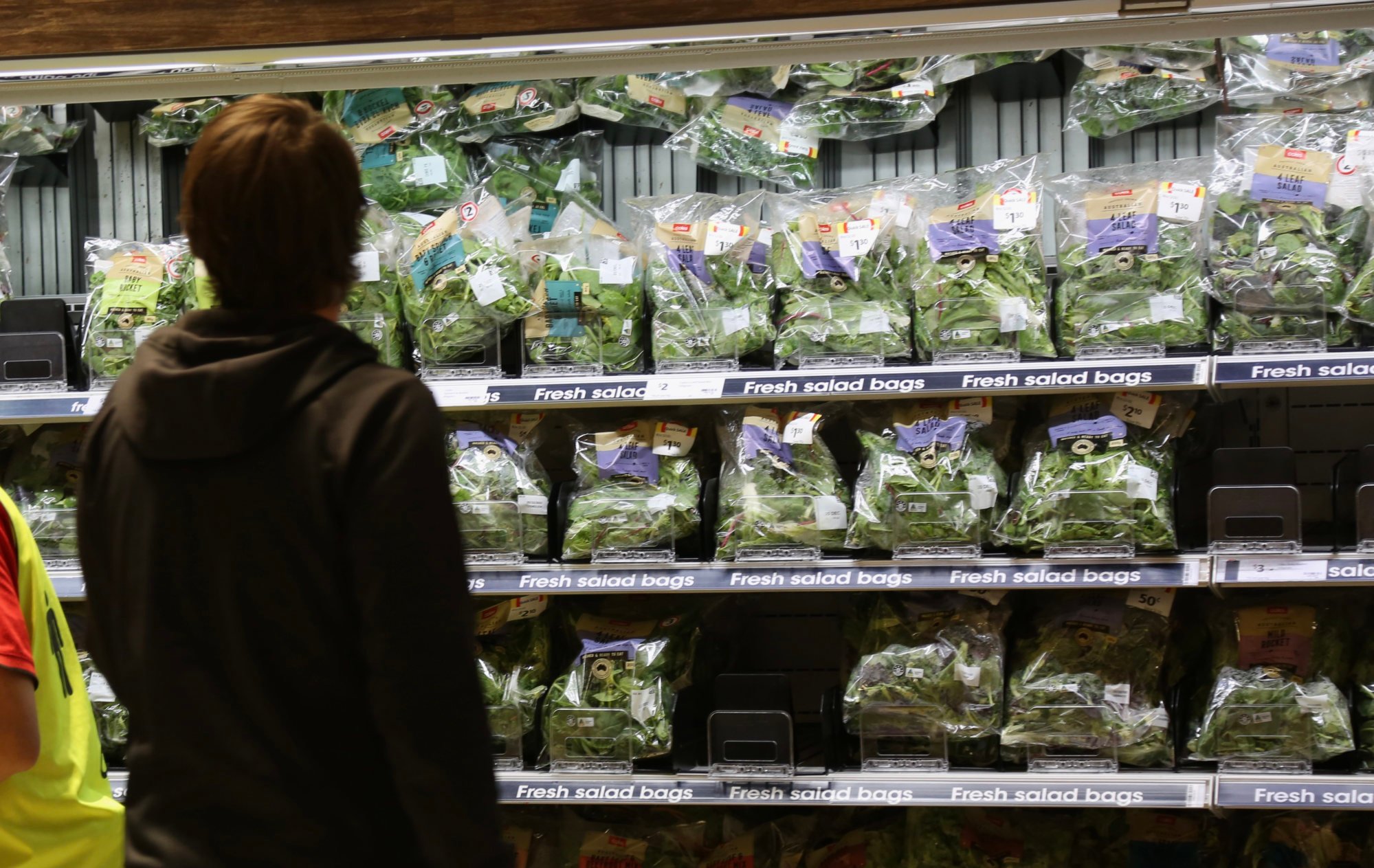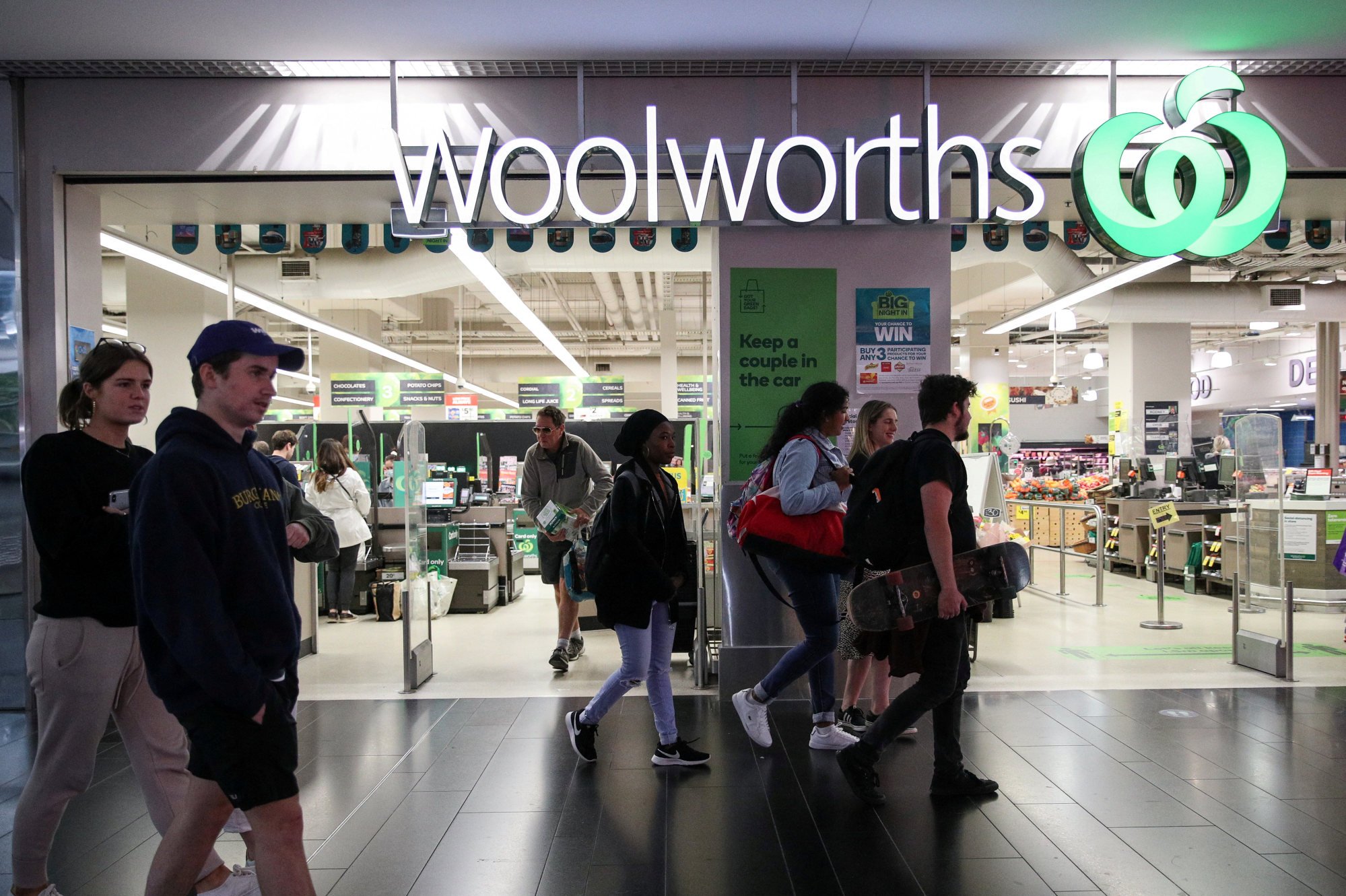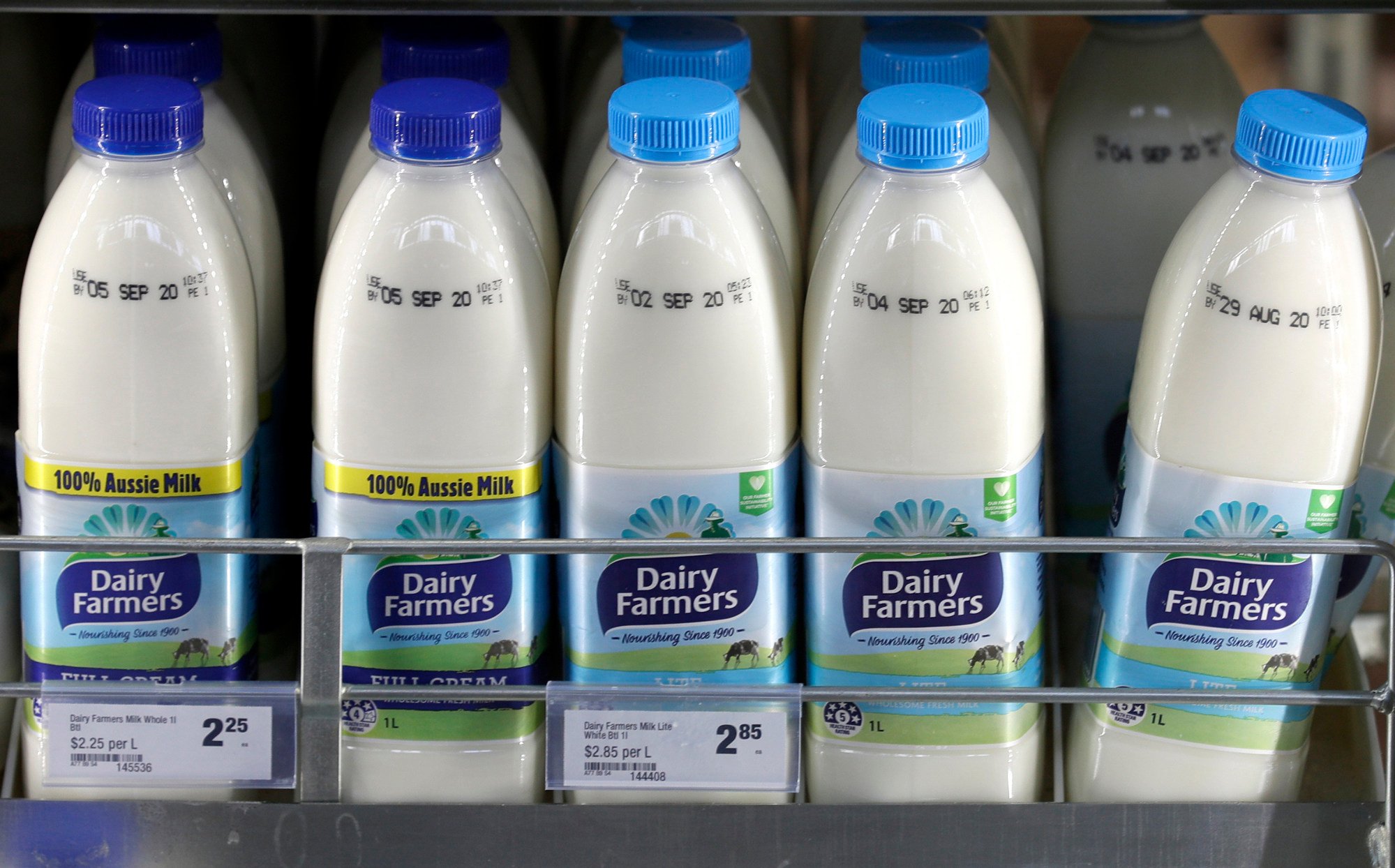Don says even his shopping bag is a measure of austerity because it limits his grocery purchases only to the bare essentials.

Food prices rose sharply amid supply chain issues but have not declined quickly enough despite economic recovery, sparking public furore over potential price gouging by the supermarket duopoly of Coles and Woolworths that controls two-thirds of the grocery market in Australia.
Many countries face similar supply chain and inflation woes, but the sting was greater for Australians after Coles and Woolworths each made a profit of over A$1 billion (US$650.6 million) last year.
The heat on the supermarkets intensified after Alan Fels, the former chair of Australia’s competition watchdog, and the Australian Council of Trade Unions (ACTU) released a report on Wednesday saying the two chains might have been overpricing and had no incentive to lower prices because of little competition.
Australia says relief package won’t fuel inflation due to ‘targeted’ nature
Australia says relief package won’t fuel inflation due to ‘targeted’ nature
The practice was also prevalent across big businesses like banks and airlines, which have too much market power, the report found.
Canberra announced last month it had tasked the Australian Competition and Consumer Commission to look into pricing and competition in the supermarket sector for another investigation.
Rip-off
“I always feel ripped off when I walk into a supermarket,” Don said.
Despite growing national anger, Don doesn’t think the government or businesses will enact changes.
“Which is why, I will continue to steal to redress things in the only way I know,” he said.

Several petitions have been raised against the two supermarkets, including one by self-described “low-income earner” Khia Alana, who struggles to afford dinner more than three nights a week.
Australian comedian Fergus Neal, who last year told his podcast listeners to do their “Australian duty” and steal a lettuce from Woolworths, said people have told him they felt a sense of hopelessness, while other listeners slammed him for inciting crime.
Neal said the supermarkets were aware of the increased theft and steep food prices, but were unlikely to budge because of their power. There is “corporate paralysis” in Australia’s uncompetitive supermarket industry, he added.
“The Woolworths CEO responded to a TikTok that I’ve made, and so he’s obviously aware of it. But they’re not lowering prices or, if they do, it’s always under the guise of ‘a special for a week’ or something like that,” he said.
Australia’s supply chain chaos creeps into Hong Kong food exports
Australia’s supply chain chaos creeps into Hong Kong food exports
Coles chief executive Leah Weckert told shareholders last year that stock loss, which included theft, rose 20 per cent in the 2023 financial year, adding that the rise in theft correlated with a higher cost of living. Supermarkets have since been ramping up surveillance to deter shoplifters.
Consumer comparison website Finder’s latest survey last month showed that 15 per cent of Australians admitted to stealing in the past year. This is up from 12 per cent in the same survey last October.
The Australian Bureau of Statistics also said retail theft for 2022 increased for the second straight year, although research by New South Wale’s crime bureau last year revealed no direct evidence that cost of living pressures had pushed up food prices.
But what was evident is how much more stressful grocery bills were for Australians compared with a few years ago, Finder said of its survey results.
It is now one of the top three financial stresses for more than 40 per cent of Australians, up from 26 per cent two years ago, the group said.
“Stress caused by grocery bills is through the roof right now,” said Graham Cooke, head of consumer research at Finder.
“But we are seeing prices for some grocery items go down … so it does look like they are lowering prices. So hopefully that’s the beginning of a trend.”

Other developed nations such as the US and the UK also have similarly high food inflation, the bank said.
Coles told This Week in Asia it was disappointed that the investigation by Fels and the ACTU did not engage the supermarkets to understand pricing.
Coles said its profit margin last year was 2.6 per cent, which meant it made A$2.60 in profit for every A$100 customers spent.
Woolworths told This Week in Asia it was keeping pantry prices low and was committed towards giving customers value as inflation moderated.
‘It’s never been this bad’: what’s behind Australia’s looming mortgage crunch?
‘It’s never been this bad’: what’s behind Australia’s looming mortgage crunch?
Costlier raw goods, sourced from suppliers, as well as disrupted supply chains and global commodity prices are at the core of the supermarkets’ defence against a senate inquiry – another investigation into food prices – that will conclude in May.
In its submission to the inquiry this week, Woolworths said there was plenty of competition from newer entrants into the grocery sector, including Aldi, Costco and Amazon.
Australians also responded to the inquiry, with one consumer who used to work at Coles saying in his submission to the inquiry he witnessed the store jacking up prices every six weeks according to gains in the Consumer Price Index, regardless of whether the cost of the goods had actually increased.
Another consumer said in another submission, Coles once priced 30 cans of Coke at A$44.90 while an independent grocer charged A$26.90.
“It’s cheaper to drink petrol and probably better for you,” he said.

